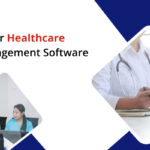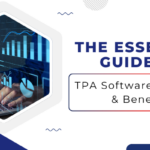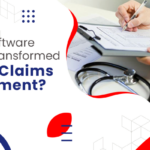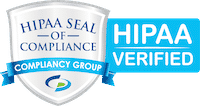Claims Software Systems: The Future of Smart Claims Handling
April 23, 2025
These days the world of claims processing software navigates the process of submitting and managing claims which can be a daunting task. However, successful healthcare claims are not only essential for healthcare providers but also for patients looking to compensate for medical expenses.
Therefore, to ensure a smooth and successful claims experience, it is important to understand the process. While minimizing risk and reducing claim costs can make more informed decisions. But if the organization’s claim management processes get stuck in the past, then both data and insights are needed for accurate decision-making.
So, instead of wasting your precious time and money on delayed claims, case managers need to implement digital solutions to automate processes and enhance operational efficiency. With the help of the right claims management software, industry leaders can unlock customized reporting and optimize their risk management processes.
What Is Healthcare Software Development?
Healthcare software development is an essential process of creating computer programs. It helps in boosting efficiency, accuracy, and patient care within the medical organization. While developing healthcare software, doctors can track patient health, manage their appointments, access reports, and many more. Patients can also gain the convenience of booking appointments, sharing reports, and can receive health advice. Thus, it leads to a healthcare experience.
In this blog, we’ll explore key strategies and tips to master the art of successful healthcare claims.
1: Documentation Is A Key
However, the foundation of healthcare claim software lies in documentation. Also, providers should maintain accurate and complete records of patient treatments and services rendered. One needs to ensure that all relevant information, procedure codes, and documents are well-organized and easily accessible. Thus, it not only expedites the claims process but also reduces the likelihood of errors.
2: Understanding Coding & Billing
Both medical coding and billing are essential core components of the claim process. There is a need to familiarize yourself with the current procedure terminology. Also, accurate coding ensures that services are properly identified and reduces the chances of claim denials. So, regularly updating coding practices gets aligned with industry standards and other guidelines.
3: Timely Submission
In terms of healthcare claims, timelines are essential, and submitting claims promptly helps in avoiding delays and potential rejections. There are many insurance providers that have strict deadlines for claims submission and failure to meet with timelines results in claim denials. So, implementing efficient systems and workflows streamlines the claim submission process within your organization.
5: Verification Of Eligibility
Before providing services, you need to verify the patient’s insurance eligibility. Taking this step helps you to avoid claim denials due to coverage issues. Therefore, confirming eligibility ensures that the patient is covered for the services rendered and reduces the risk of claim rejections.
6: Clear & Transparent Communication
Although, effective communication is important for any successful healthcare claims. When having open lines of communication with patients can gather some accurate information and specify any concerns they might have. When clearly communicating billing and payment expectations one can avoid misunderstandings that could lead to claim disputes.
7: Keep Informed About Policies
However, different insurance providers have specific policies and guidelines for claims submission. It keeps you informed about the policies of major players and tailor your approach accordingly. This helps in understanding pre-authorization requirements, documentation standards, and other specific billing procedures.
7: Utilize Technology
You can easily embrace technology these days and streamline the claims process. So, you need to implement electronic health records and billing systems to reduce errors and improve efficiency. However, automated systems can assist in verifying patient eligibility, checking coding accuracy, submitting claims electronically, and expediting the entire process.
8: Appeals Process
However, in the event of a denied claim, you need to be prepared to navigate the appeals process. Also, you need to understand the reasons for denial, gather essential documentation, and submit well-crafted appeals. Persistence in appealing denied claims can enhance the likelihood of a successful resolution.
9: Staff Training & Education
You need to invest in ongoing training and education for your staff and ensure that everyone should be involved in the claims process and look for the latest coding guidelines and other policies. However, a skilled and knowledgeable team is key to assisting in achieving successful healthcare claims.
10: Regular Audits & Quality Checks
While implementing regular audits and quality checks, you can identify and address any potential issues before they escalate. Also, periodic reviews of the claims process help you identify patterns of errors that require improvement and contribute to long-term success.
11: Technical Considerations
When examining medical billing software, it becomes important to consider various factors to ensure your practice needs. You can look for features like API integrations that facilitate seamless data exchange with the other systems. It ensures efficient workflow integration and assesses data migration capabilities smoothly from legacy systems without any data loss.
Having a user-friendly interface is essential for ease of use by your staff. One needs to ensure that the software offers navigation and the best features to suit your workflow preferences. Besides, comprehensive training and ongoing support from the software provider are important to maximize your investment. You need to look for vendors that are known for offering your robust training programs and customer support and address any issues that arise during implementation.
12: Research Your Options
So, investing your time in exploring the billing software choices favored by medical practitioners is essential. By immersing yourself in their preferences and experiences, one can gain invaluable guidance and select the essential tools in the market. Armed with this knowledge, you will be equipped to make informed decisions. One can ensure to choose the right software that perfectly aligns with your specific needs.
Conclusion
In the end, we can say that investing in healthcare claims management software is essential for the success and efficiency of your healthcare practice. So, by carefully examining your practice needs, prioritizing key features, and considering factors and deployment options, one can choose a solution that aligns perfectly with your requirements.
So, conducting thorough research and leveraging the insights from practitioners and online communities will help you to make an informed decision. It ensures a seamless transition to your new software and whether you opt for a cloud-based on-premise or outsourced solution. You need to prioritize the long-term success of your practice by investing in the right medical billing software.
How Health Claims Management Software Transforming The Industry?
February 7, 2025How Claims Software Can Transform Your Claims Process?
January 29, 2025The Need For Healthcare Claims Management Software
January 13, 2025Reasons You Should Invest in Claims Management Software
January 7, 2025The Essential Guide To TPA Software Features & Benefits
December 24, 2024Claims Management Software: Key To Streamlining Your Business
December 18, 2024How TPA Software Solutions Transformed Medical Claims Management?
November 20, 2024









